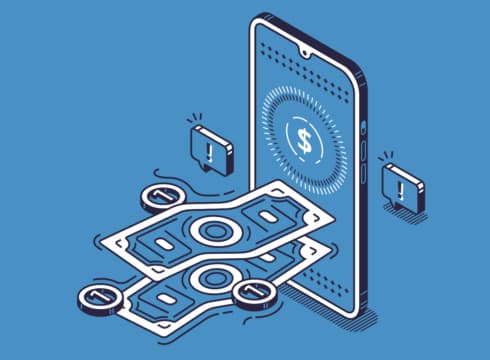In the FAQs on digital lending guidelines, the RBI said that the details of a recovery agent must be communicated to the borrower before the agent contacts the borrower
The RBI said that physical debt collection by online platforms through cash should only be done where ‘absolutely necessary’
Payment aggregators that also operate as lending service providers will have to comply with digital lending guidelines, the central bank said
Inc42 Daily Brief
Stay Ahead With Daily News & Analysis on India’s Tech & Startup Economy
The Reserve Bank of India (RBI) has mandated all digital lending platforms to communicate the details of recovery agents to borrowers if a loan turns delinquent.
The clarification was issued as part of a list of frequently asked questions (FAQs) on digital lending guidelines released by the central bank on Tuesday (February 14). In essence, the details of the concerned debt collection agent will be forwarded to the borrower beforehand to ensure transparency.
“… if the loan turns delinquent and the recovery agent has been assigned to the borrower, the particulars of such recovery agent assigned must be communicated to the borrower through email/SMS before the recovery agent contacts the borrower for recovery,” the central bank said.
The move will allow the RBI to curb harassment and intimidation of borrowers by multiple recovery agents of the same company. It will also enable the central bank to build a framework under which lending platforms will be mandated to assign a nodal person for each loan application, and will set accountability.
The FAQs also specify conditions for deploying ‘physical interface’ to recover delinquent loans. The RBI said that physical debt collection by online platforms through cash can only be done where ‘absolutely necessary’. The central bank also said that such transactions will be exempted from the mandate of direct repayment of loan into the bank account of such regulated entities.
“… any recovery by cash should be duly reflected in the borrower’s account and REs shall ensure that any fees, charges, etc., payable to LSPs are paid directly by them (REs) and are not charged by LSP to the borrower directly or indirectly from the recovery proceeds,” added the RBI in a clarification.
Among other things, the RBI also said that entities offering only payment aggregator (PA) services will remain outside the ambit of the digital lending guidelines. It, however, added that PAs who also operate as lending service providers (LSPs) will have to comply with the norms.
The central bank also reiterated that LSPs should not handle funds flowing between lenders and borrowers.
The RBI released the digital lending guidelines in September last year. Applicable to banks and non-banking financial companies (NBFCs), the norms were envisaged to curb unethical practices and regulate the digital lending industry.
The new guidelines mandate that all loan disbursals and repayments be executed between the borrower and the REs. It also bars any automatic increase in credit limits without the borrowers’ explicit consent, among a slew of other changes.
The guidelines were issued amid numerous complaints of harassment and intimidation of borrowers by digital lending apps and platforms, with some of the customers also taking extreme steps like taking away their lives.
The RBI has cracked the whip on unauthorised digital lending apps. Earlier this month, it was reported that the RBI and the Ministry of Electronics and Information Technology (MeitY) developed a whitelist of loan apps, which was then forwarded to Google Play Store and Apple App Store.
Close on the heels of that, the Centre also banned 94 digital lending apps with links to China, including clones of many India apps. However, many Indian apps also were part of the list, and the ban on many of the apps was later revoked.
Meanwhile, Union Minister Ashwini Vaishnaw on Monday called the ban on digital lending apps an ‘issue of national security.’
This also comes a day after RBI cancelled the registration of two NBFCs for allegedly harassing borrowers. One of these impacted NBFCs, Kudos FInance, was also involved in an INR 940 Cr ED money laundering probe.
{{#name}}{{name}}{{/name}}{{^name}}-{{/name}}
{{#description}}{{description}}...{{/description}}{{^description}}-{{/description}}
Note: We at Inc42 take our ethics very seriously. More information about it can be found here.


